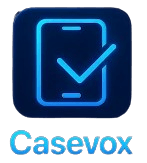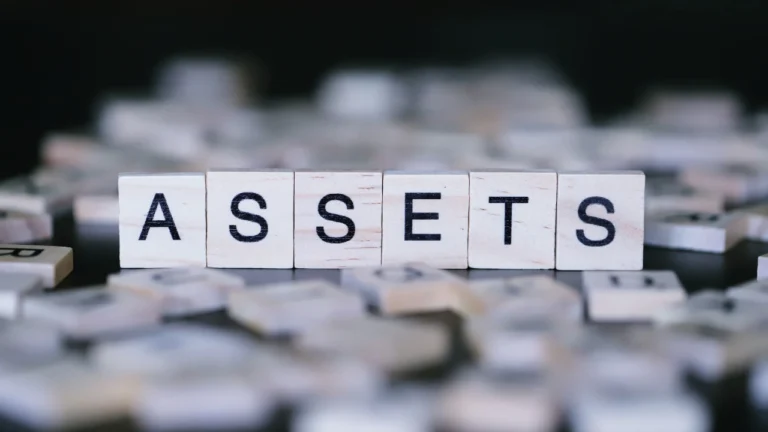Collection Receivables Phone Harassment❓
Is Collection Receivables calling you excessively over your unpaid credit card debt? Have you been thinking of ways to put an end to the calls from Collection Receivables? Do not lose your calm, there is hope even in the face of harassing debt collection calls from Collection Receivables.
Have you ever heard about the FDCPA? The FDCPA is a strong federal law, fully known as the Fair Debt Collection Practices Act. It shields people against certain unlawful collection practices carried out by many collection agencies like Collection Receivables phone harassment, calling excessively, threatening to sue you for a debt for which the statute of limitations has expired, and calling you at work, or at unfavorable hours of the day, etc. It also protects you from threats of legal action that are not permissible under the law.
The law only applies to third-party debt collectors which means that it applies to Collection Receivables debt collection. And it can be used for only personal debts (this means that the FDCPA does not include debts acquired by a corporation or business debts acquired by an individual). The laws, however, vary from state to state.
You do not have to keep enduring Collection Receivables phone harassment. You have a right to demand that debt collectors respect your Fair Debt Collection Practices Act (FDCPA) rights and treat you with the dignity worthy of your person. If they fail to do so, you can be awarded up to $1000 for every FDCPA violation claim, and at times have your debt waved. Call us today, if you believe your FDCPA rights have been violated during Collection Receivables debt collection.
Clear communication regarding payment terms and penalties associated with late payments is crucial. Including these details in initial agreements can help prevent misunderstandings and encourage timely payments.
Introduction to Collection Receivables
Collection receivables refer to the process of collecting payments from customers for goods or services provided. Effective accounts receivable management is crucial for maintaining a healthy cash flow and overall financial health. The accounts receivable collections process involves managing accounts, invoices, debts, and customers to ensure timely payment. Businesses can implement various strategies to reduce overdue payments and speed up customer payments, such as sending electronic invoices, tracking payment status, and offering payment plans. By focusing on these strategies, businesses can improve their accounts receivable collections and maintain a healthy cash flow, which is essential for their financial stability and growth.
What Do I Do If A Debt Collector Sues Me?
It is often times scary to think about being in a debt and could get scarier when you get sued for not being able to pay back. The possibility of legal action by a debt collector can be daunting. If Collection Receivables has filed a lawsuit against you, it’s not the end of the world. What do you do when a third-party debt collection agency like the Collection Receivables sues you? Follow these simple tips:
- � Do not run away from the lawsuit. That gives the debt collector an automatic judgement against you.
- 🧾 Ask that Collection Receivables sends you the proof of your debt and the exact amount you owe. This lawsuit could be a scam to out you under pressure to pay so you cannot be too careful. Do not be too fast to show your own proof, let the Collection Receivables show the proof of your debt instead.
- ⚖️ Get support. Yes, hire your own defense, a reliable attorney. Don’t just give into demands during Collection Receivables agency debt collection. Fighting alone can be risky.
- 🛡️ Get a cover. Get a cover? Yes, file a petition of Bankruptcy If it’s an extreme case. The court will step in between the Collection Receivables and you and find more convenient ways for you to pay off your debt, garnishing could be an option.
So as scary as the Collection Receivables can be, you stand a chance of getting out of the lawsuit without stress. And if the debt collector should in any way harass you, the tables and turn and you can sue them, because they have violated your rights under the Fair Debt Collection Practices Act (FDCPA).
Is Collection Receivables a Scam?
According to the Better Business Bureau website, Collection Receivables has been in business for 23years. There have been 22 complaints filed against CR with the BBB.
Who are Collection Receivables?
Collection Receivables is third party debt collector located in Augusta, Georgia. CR has been a party to a Federal Court case over 45 times. They have been accused of violating consumer’s rights and illegal and harassing communication tactics to attempt to coerce a payment from the harassed consumer.
Managing outstanding invoices is crucial to avoid the need for legal action. Timely follow-ups and reminders can help ensure payments are received, enhancing cash flow and fostering positive customer relationships.
🏛️ Collection Receivables Address: 1835 Central Ave Augusta, GA 30904-5734
📞 Phone Number: (706) 736-6746

Collection Receivables Phone Numbers
Are you receiving any harassing phone calls from any of the following numbers?
- 📲 706-736-6746
- 📲 706-736-3114
- 📲 706-736-3095
- 📲 (706) 736-6746
- 📲 (706) 736-3114
- 📲 (706) 736-3095
- 📲 7067366746
- 📲 7067363114
- 📲 7067363095
If the answer is yes, then you are receiving calls from a known CR number. You may be a victim of CR phone harassment. The list above is not all the numbers that CR uses. The calls can be from different numbers, and it still be Collection Receivables calling you. Contact our office right away so we can start the process to stop CR from calling you illegally. Above all, no one should live with harassment!
Preventing Phone Harassment
Phone harassment is a common issue in the collections process, and businesses must take steps to prevent it. Clear communication and respect for customers’ boundaries are essential in preventing phone harassment. Businesses should ensure that their collection agents are trained to communicate effectively and professionally with customers. Additionally, businesses can implement measures such as limiting the number of phone calls made to customers and providing customers with options to pay their debts through other channels. By taking these proactive measures, businesses can improve their collections process while maintaining positive customer relationships.
Clear Communication in Collections
Clear communication is critical in the collections process. Businesses should ensure that their invoices and payment terms are clear and concise, and that customers understand their payment obligations. Effective communication can help prevent misunderstandings and disputes, and can also help to build trust between businesses and their customers. Businesses can use various channels to communicate with customers, such as email, phone, and mail, and should ensure that their communication is timely and professional. By prioritizing clear communication, businesses can encourage timely payments and improve their overall collections process.

Collections and Compliance
Collections and compliance are closely linked, and businesses must ensure that their collections processes comply with relevant laws and regulations. The Fair Debt Collection Practices Act (FDCPA) is a federal law that regulates debt collection practices, and businesses must ensure that their collections processes comply with this law. Additionally, businesses must comply with other laws and regulations, such as the Telephone Consumer Protection Act (TCPA) and the Gramm-Leach-Bliley Act (GLBA). Businesses can ensure compliance by implementing policies and procedures that govern their collections processes, and by training their collection agents on these policies and procedures. Regular audits and monitoring can also help to ensure compliance and prevent violations. By adhering to these regulations, businesses can conduct their collections processes ethically and legally, protecting both their interests and those of their customers.
Collection Receivables Complaints
The following is a sample list of complaints filed against Collection Receivables in the past and can be found on Pacer.gov.
- 📋 5:12-cv-00326-CAR Wells v. Collection Receivables
- 📋 7:12-cv-00136-HL Whisby v. Collection Receivables
- 📋 5:18-cv-00070-MTT Calhoun v. Collection Receivables
- 📋 1:16-cv-01289-JMC Barefield v. Collection Receivables
- 📋 1:19-cv-02810-MHC-JKL Stanley v. Collection Receivables
About Us
Consumer Rights Law Firm PLLC is a law firm that specializes in helping clients who are facing harassment from debt collectors in any form, including telephone communication. Rather than suffer alone, contact our office to begin the process to stop the Collection Receivables harassment. Our office has been assisting consumers since 2010. We have an A+ rating with the Better Business Bureau.
Maintaining a positive relationship with clients is crucial to prevent harassment and ensure smooth collections.
If you are interested in learning more about how to safeguard yourself and prevent harassment from Collection Receivables, call us at 877-700-5790 for immediate assistance or visit our website.
Success Stories
- 🏆 I was being harassed by Collection Receivables for a debt I didn’t even owe. They called me nonstop and threatened legal action. Consumer Rights Law Firm PLLC stepped in, demanded debt validation, and when the collectors couldn’t prove it, the case was dropped! They even made sure the false debt was removed from my credit report. If you’re being bullied by debt collectors, call them ASAP—they know how to fight back!
- 🏆 Collection Receivables was relentless—calling me at work, sending scary letters, and even filing a lawsuit over an old medical bill. I hired Consumer Rights Law Firm PLLC, and they immediately put a stop to the harassment. They challenged the lawsuit, proved the debt was past the statute of limitations, and got the case dismissed. Now, I have peace of mind. Best decision ever!
- 🏆 I didn’t think I had any rights against debt collectors until I talked to Consumer Rights Law Firm PLLC. Collection Receivables violated the FDCPA (Fair Debt Collection Practices Act) by using abusive language and calling me after I told them to stop. My lawyer not only shut them down but also sued them for harassment—and I won $1,000 in damages! If you’re being mistreated, don’t wait—fight back with these pros!
- 🏆 Collection Receivables was about to garnish my wages over a credit card debt. I was terrified, but Consumer Rights Law Firm PLLC stepped in and negotiated a lower settlement that I could actually afford. They also made sure the collectors followed the law and stopped their aggressive tactics. I couldn’t have done this without them. If you’re drowning in collection calls, get help now!
FAQs
What counts as phone harassment by debt collectors?
Phone harassment includes repeated or continuous calls intended to annoy, abuse, or harass, as well as calls at inconvenient times (before 8 a.m. or after 9 p.m.) or with threatening or profane language. These practices are prohibited under the FDCPA.
How often can a debt collector legally call me?
Under FDCPA and Regulation F, collectors can’t call more than 7 times in 7 days about the same debt, or within 7 days of a prior phone conversation.
What hours can I receive calls from debt collectors?
Collectors may only call between 8 a.m. and 9 p.m. local time, unless you explicitly give permission for other hours. They must also stop calling at times you’ve indicated are inconvenient.
Can I request that collectors stop calling me at work?
Yes. If you tell a debt collector not to call you at work, they must stop contacting your workplace.
What should I do if phone calls from debt collectors are harassing?
Document the date, time, and content of each call. Then send a written cease-and-desist letter via certified mail. If they continue, file a complaint with the CFPB, FTC or your state attorney general, and consider legal action.
Can I sue a collector for phone harassment?
Yes. The FDCPA allows you to sue for violations like repeated calls, threats, abusive language, or robocalls without consent. Statutory damages up to US $1,000 plus actual damages and legal fees may apply.
Are robocalls from collectors legal?
If they call your cellphone using an auto-dialer or prerecorded voice without your express consent, that violates the TCPA and can lead to penalties of US $500–1,500 per call.
What must a collector say when calling me?
Debt collectors must identify themselves, state their agency, and notify you that they’re calling to collect a debt. If leaving a voicemail, they must still follow identity rules without disclosing debt details to third parties.
Can collectors call my friends or family about my debt?
They may only contact third parties to obtain your contact information—and no more than once—unless it’s your spouse or attorney. Otherwise, it’s prohibited.
What is zombie debt, and can calls about it be harassment?
Zombie debt refers to old debts that are past the statute of limitations. Collectors pushing them can violate the FDCPA if their calls are harassing. Engaging may restart the clock, so send a certified dispute/cease-contact letter instead.







